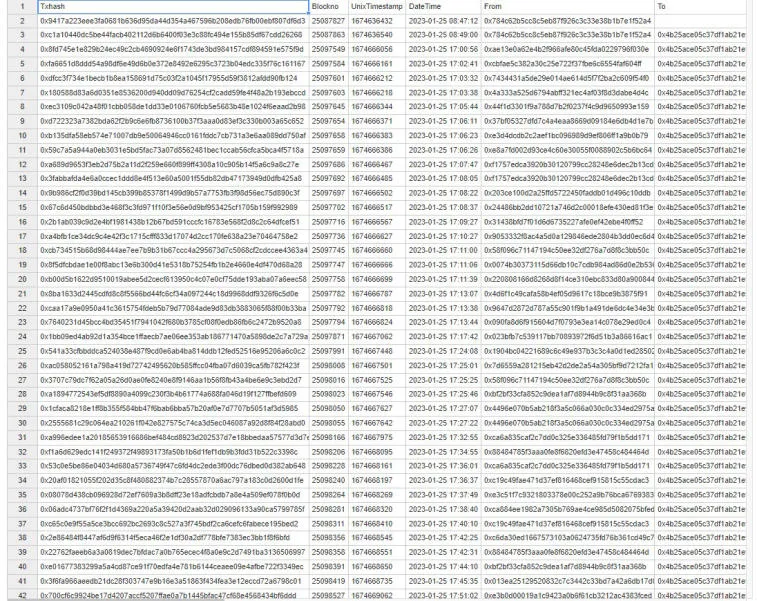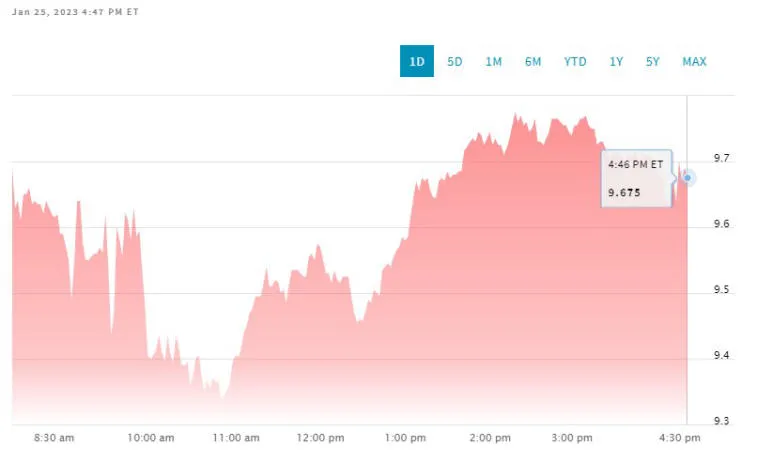Robinhood's Twitter account has been hacked
A group of unidentified hackers were able to gain unauthorized access to the Robinhood cryptocurrency exchange Twitter account. Experts claim that this was for the purpose of obtaining illegal profits.
On behalf of the administration of Robinhood, letters were sent in which investors were urged to buy a coin. Experts claim that at least 10 people have purchased more than 1000 tokens. These thoughts were shared by Conor Grogan, representing the publication Coinbase.
We found 41 transactions that were carried out with the attackers' smart contract. Hypothetically, the attackers could make the first transaction in order to put money on the token and thereby provide the necessary liquidity for deposits and withdrawals, as well as to create the appearance that the coin is alive.

With this in mind, out of 41 transactions, 2 of them are hacker transfers. This means that theoretically 39 transactions were made by victims of fraud. Consequently, the victims could be not 10 people, but more. Some transactions came from the same wallets, which eliminates the possibility that the number of victims was 39 people.
The owner of the largest cryptocurrency exchange in the world, Binance, Changpeng Zhao, drew attention to the situation and did not leave this case without comment. He stated that the cryptocurrency company blocked the Robinhood account for further clarification of the circumstances in order to understand what happened and understand what needs to be done next.
Recently, experts have noted that hackers are increasingly starting to use dishonest ways to make money. Most often, they use phishing as a tool to capture such profit. In more rare cases, there are also such moments when they make a mailing list, inviting gullible people to purchase cryptocurrency tokens of dubious content.
The most interesting thing in this situation is that Robinhood does not have its own native token as such, and therefore such messages should have aroused suspicion among the victims. Fans of this exchange can only buy shares of the company on the NASDAQ financial exchange. Now they are priced at $9,675 each. After the hack, the asset fell by $0.045.

The PancakeSwap platform, through which the scam was implemented, allows everyone to upload their token to the platform and give them the opportunity to purchase it. Cryptocurrency hobbyists should be especially careful with such cases. PancakeSwap, in turn, gives a warning during such transactions, noting that the token has not been verified and does not have an official legal representative.
You can read more about how to protect yourself in the world of cryptocurrencies in our material on precautions in cryptography. If you missed this material, we strongly recommend that you read it to avoid such situations.
Earlier it became known that Proofpoint, involved in security in the field of Internet networks, reported that recently the hacker group TA444, which may have links with the authorities in North Korea, has been more active than usual lately. Over the past year, TA444 have been able to steal over $400,000,000 fraudulently, according to Proofpoint.
The capital of North Korea, Pyongyang continues to provide funding to its cybercriminals. The United Nations reports that North Korea is likely to send the stolen money to the development of the nuclear program.
A few weeks ago, it became known that the Horizon blockchain bridge was attacked, leaving the victims of the hack in total without their $100,000,000. Network detectives claim that another hacker group from the same North Korea, known under the pseudonym Lazarus, may be behind this.
Cryptography experts often point out that phishing is the main method for finding their victims. In order to avoid such unpleasant moments, users should be extremely careful when receiving such emails and check the address they are redirected to. Administrators of cryptocurrency exchanges will not send an e-mail asking them to follow the link and enter their data to protect their account. In such cases, the victims lose money, because they voluntarily give up their data, which, as a result, is received not by the project administration, but by the hackers who sent the letter.

Коментарі